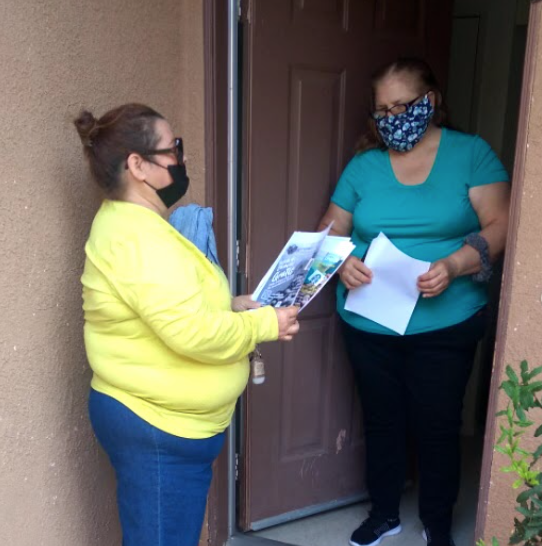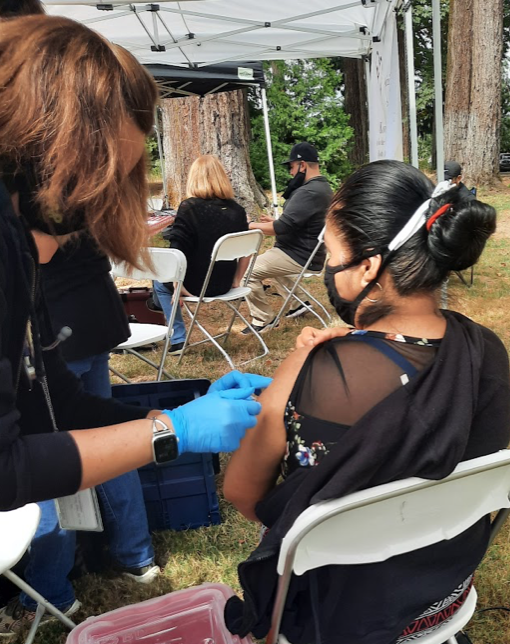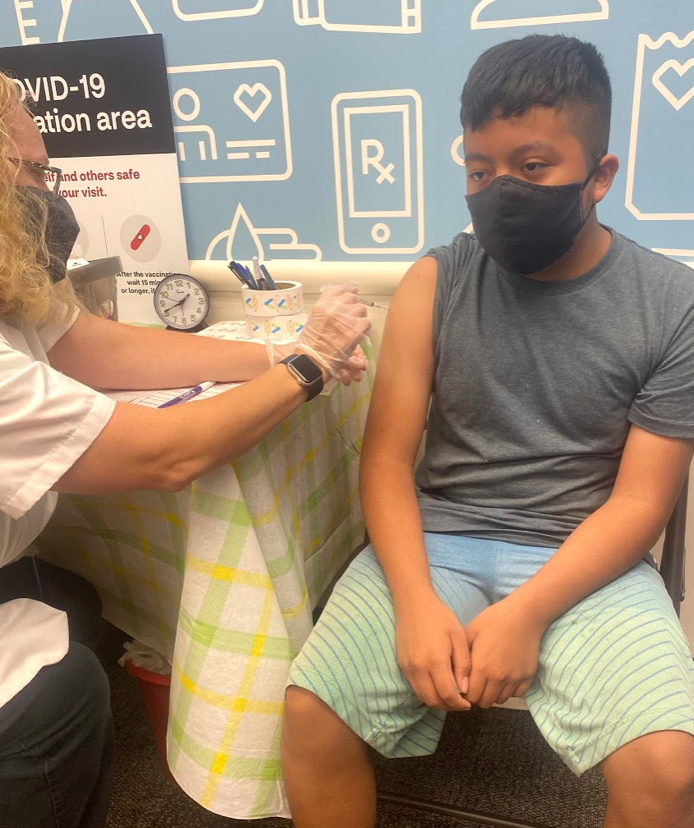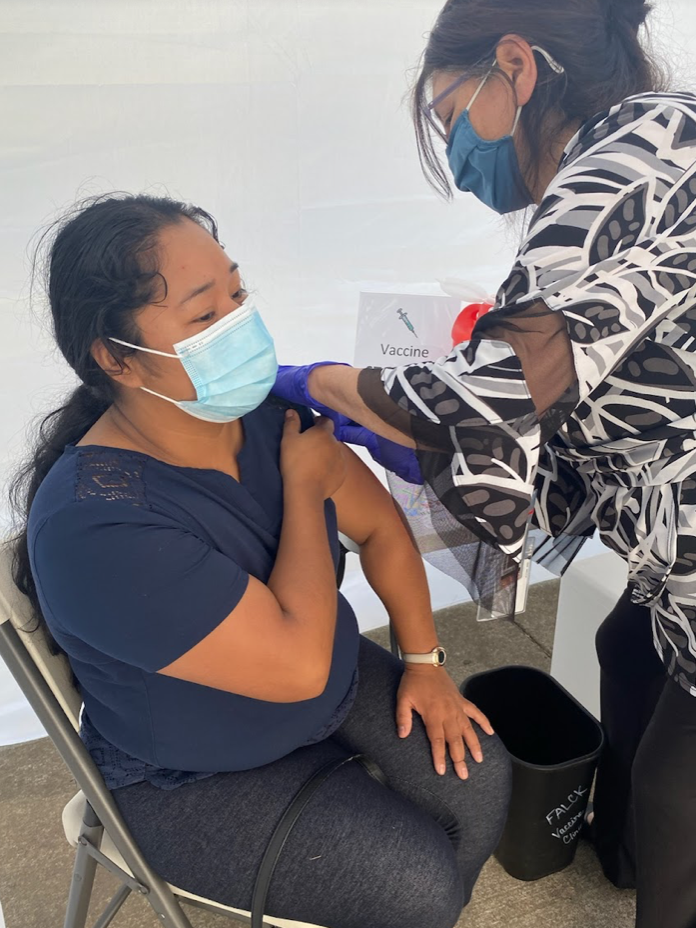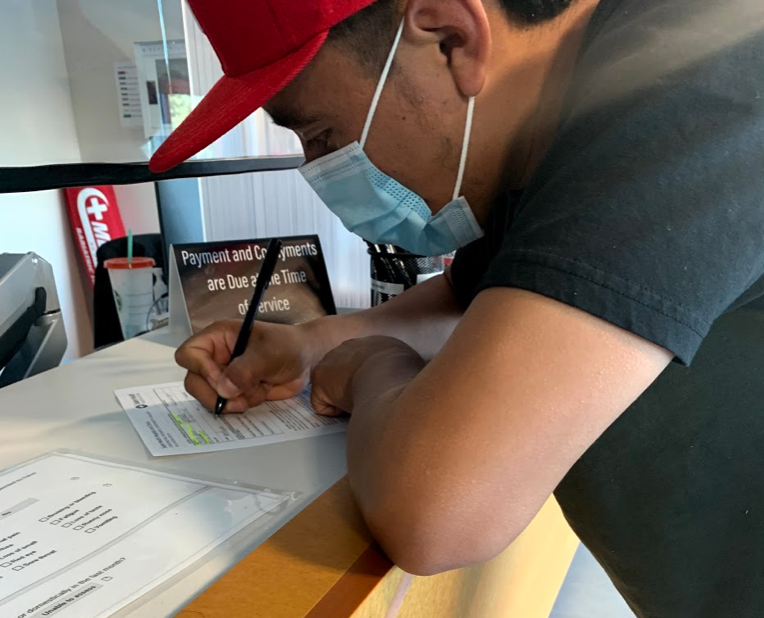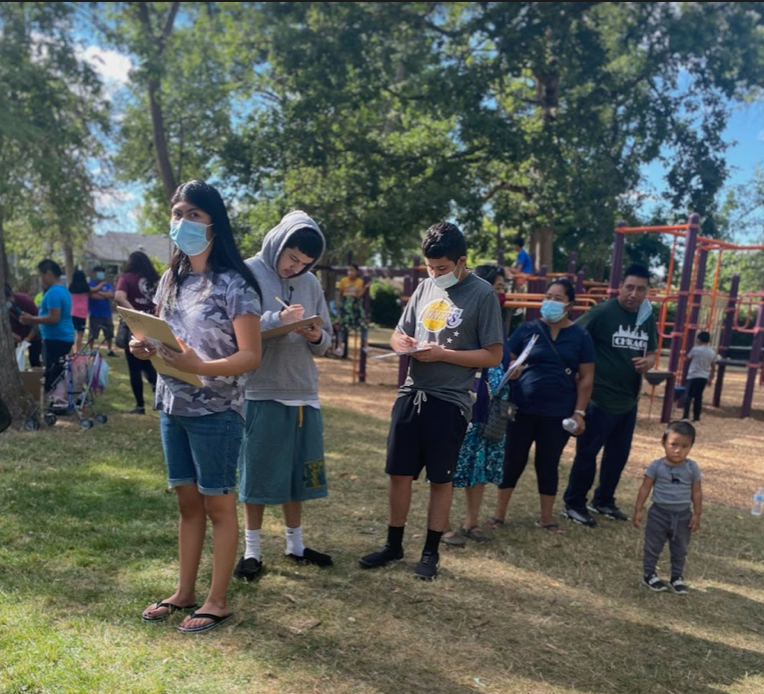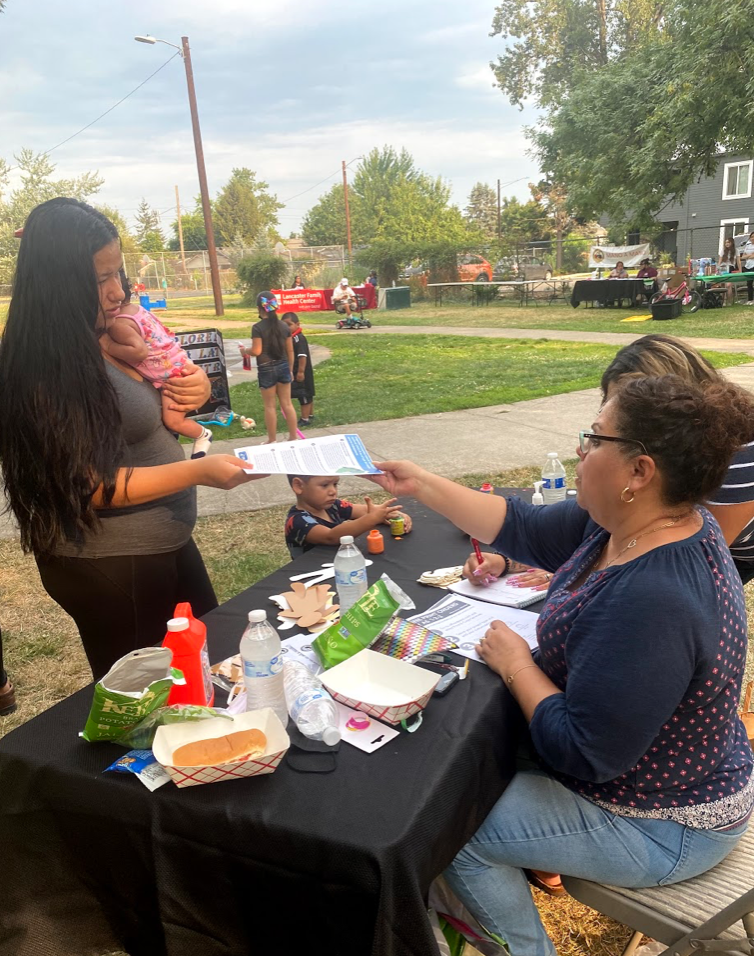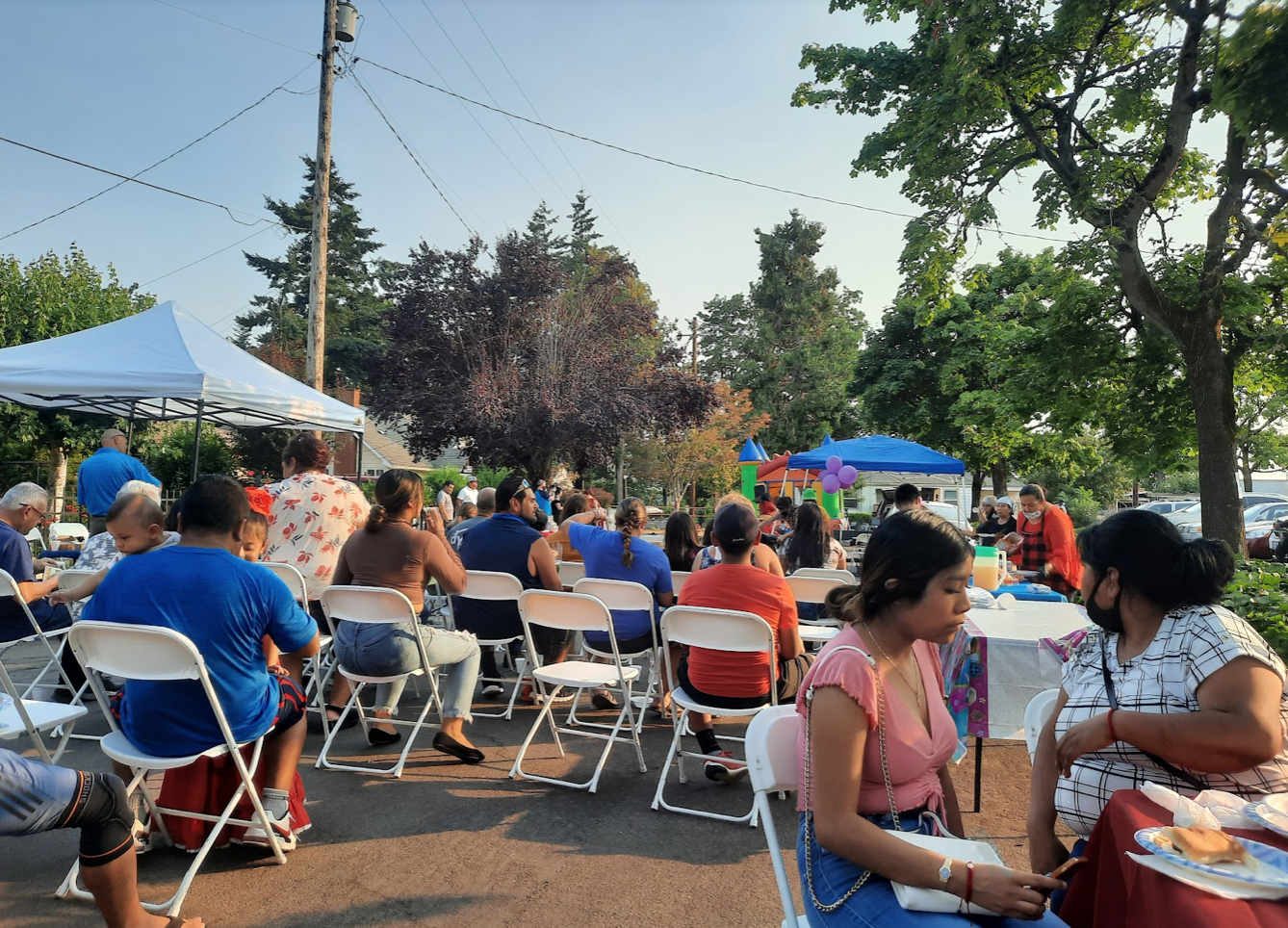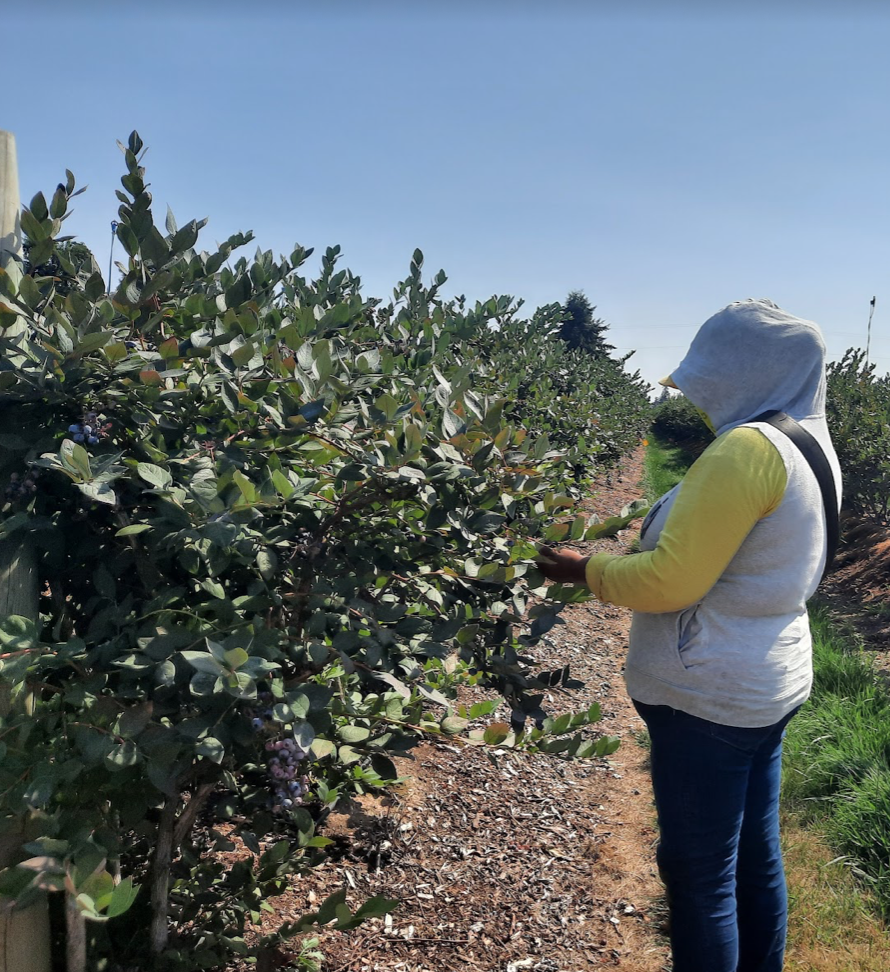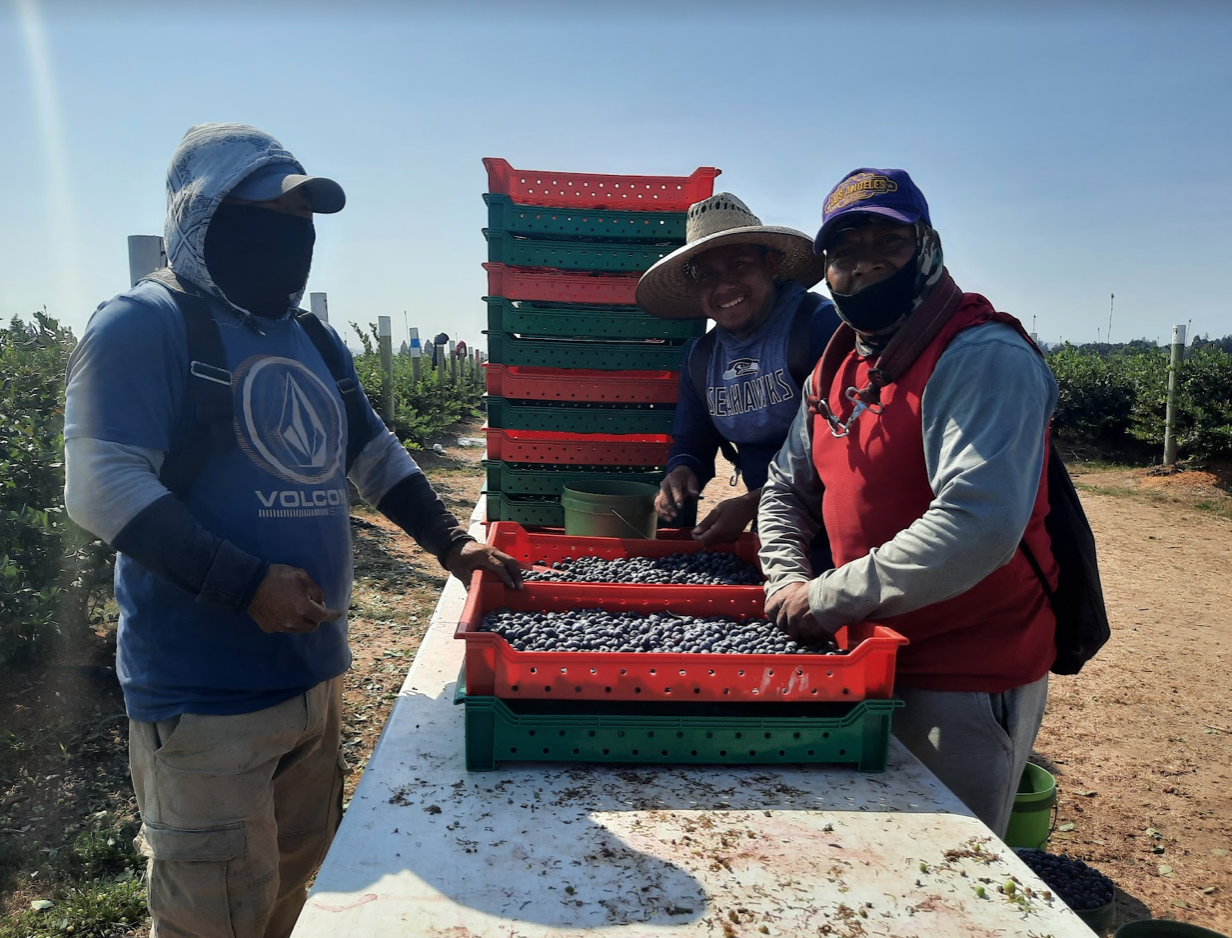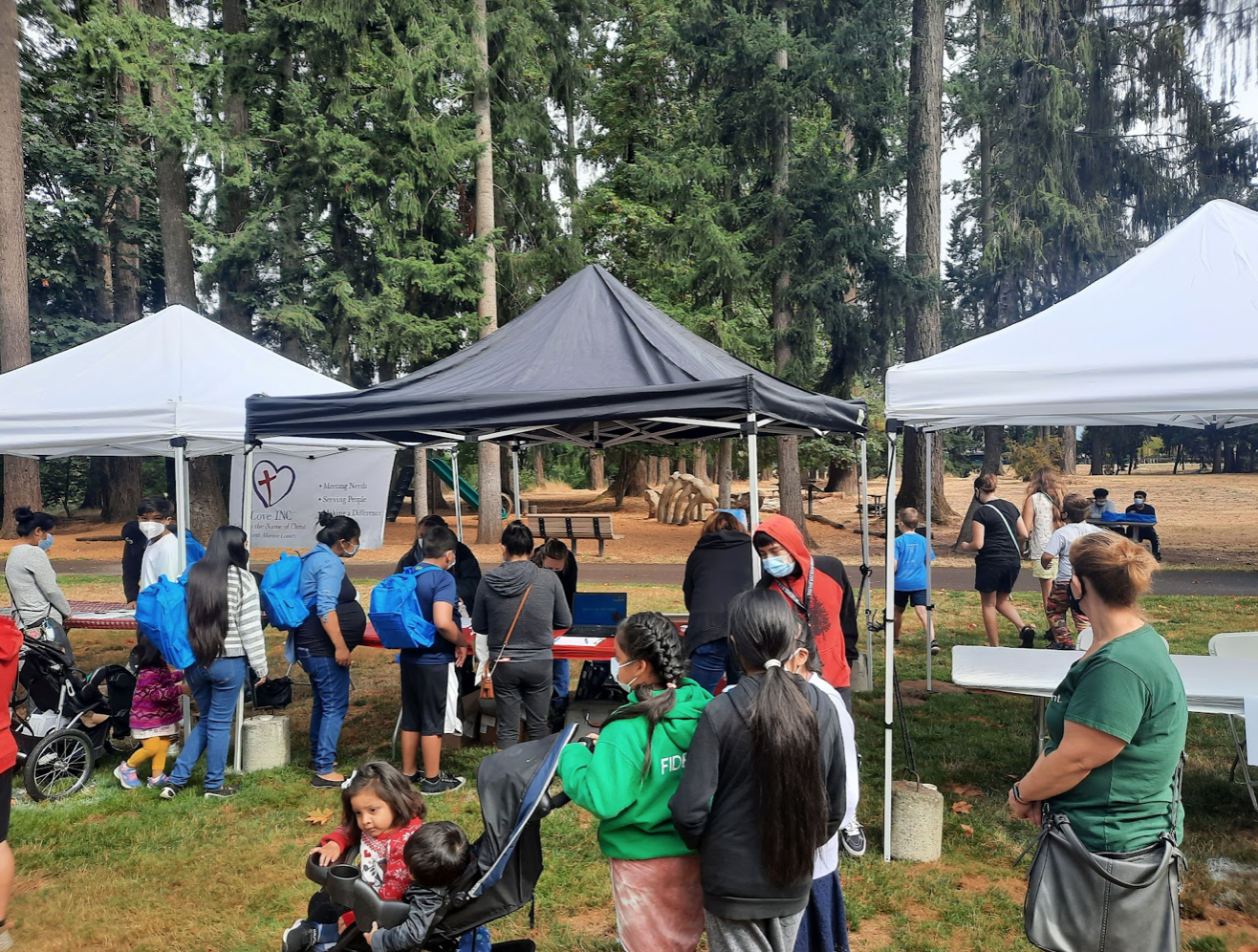ABOUT
Rural communities of color at the frontlines of the pandemic
Farmworkers have shouldered the impact of the pandemic at disproportionate rates, from lack of personal protective equipment, to working conditions that make it impossible to maintain social distance, to their systematic exclusion from federal response efforts and assistance due to their immigration status (approximately 65% of farmworkers are undocumented). As of April of 2021, approximately 554,000 of nearly 3 million farmworkers have been infected by the virus, and 9,100 have died. Farmworker women experiencing domestic violence will be particularly harmed as they continue to face barriers to COVID testing, treatment, and care, as well as childcare.
Since the beginning of the pandemic, farmworker women have been at the frontlines of care - supporting their communities with food distribution, information dissemination to promote safety during the pandemic, and eventually, facilitating vaccination.
As the country ramped up vaccination efforts, farmworker and rural communities of color were left behind with lower rates of vaccination and access to treatment and care.
This work is supported by the Health Resources and Services Administration (HRSA) of the U.S. Department of Health and Human Services (HHS) as part of an award totaling $8,105,547 with 0% percentage financed with non-governmental sources. The contents are those of the author(s) and do not necessarily represent the official views of, nor an endorsement, by HRSA, HHS, or the U.S. Government. For more information, please visit HRSA.gov.

